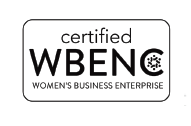Three things your speech ending needs to do
When you deliver a speech or presentation, everyone knows the first thing you say matters.
But do you want to know the truth?
The last thing you say matters even more.
 Think about how you ended a recent speech.
Think about how you ended a recent speech.
- Did you leave the audience feeling satisfied?
- Attracted to your Big Idea?
- Ready to act on what you had to say?
Many speakers intend to end a speech with gusto – but run out of time, energy or inspiration to get it done.
And that’s a mistake.
Because the stakes for ending a speech are really pretty high, thanks to the recency effect.
This principle says the items or experiences you present most recently are the ones your listeners will remember best.
What does that mean for speakers?
It means if you have something to say that has to stick, say it last. Not only will audiences remember it, they’ll tend to think it’s more important than what you’ve said before.
Recall the last time you had to deliver a speech or presentation.
Did you use the recency effect to your benefit? Or your detriment?
Did you end your speech with (awful and unmemorable) lines like these?
- “They’re telling me I’m out of time, so I’ll stop now. Thank you.”
- “And that’s all I have for you today. Thank you.”
- “It looks like it’s time for lunch, so I’ll wrap it up. Thank you.”
If so, your listeners probably remembered.
Are those the kinds of messages that you want to stick?
Let’s take a quick look at some endings that pack a bigger punch. (Perhaps they will inspire you if you’re preparing now to deliver a speech or presentation.)

For example:
People still wonder, and always ask what if.
But here? We won’t have to.
Because we’re moving with our technology and our markets.
We’re neither complacent nor afraid.
And we’re turning our biggest threat into our biggest opportunity for growth.
Today, we are blessed with the benefit of hindsight. And emboldened by our choice to make digital transformation a reality.
We are paying attention. We are courageous. And we are ready to seize the opportunity.
And when we do?
Your customer relationships in our connected world will be EVEN STRONGER and MORE VALUED than they are today.
And your business will likely be even LARGER and more PROFITABLE than it is today.
Powered by the ultimate combination of high-touch – AND high-tech.
Comment: This ending effectively punctuates the theme and Big Idea of the speech: the power of combining “high-touch” and “high-tech,” which was referenced at least a dozen times in the speech. This ending leaves the audience feeling satisfied and ready to take the next step.
***
Here’s another speech ending:
As our third and fourth generations take the reins, what happens next is your hands.
It’s up to YOU to protect and defend this unique and different opportunity – the Spirit of Opportunity! – that’s been handed down to you.
It’s up to YOU to master the fundamentals.
It’s up to YOU to continue to innovate.
It’s up to YOU to work hard … together, as equity partners! … to build collective success – now and in the future.
Comment: One reason this ending works so well is the repeated emphasis on the word “you,” which compels the audience to get in the game, go forward and take action.
***
 Here’s how a different speech ended:
Here’s how a different speech ended:
Being a leader is a choice. Something you must choose every single day.
But make no mistake: Some days it’s hard!
It’s a whole lot easier to put your head down, and do the work on your plate right now.
But don’t just let circumstances happen.
Because what you choose will matter in the end.
Michael Josephson, who writes about character and ethics, really brings it all home with his poem about what matters.
He says it’s “not what you bought but what you built, not what you got but what you gave … What will matter is not what you learned but what you taught.
“What will matter is every act of integrity, compassion, courage or sacrifice that enriched, empowered or encouraged others to emulate your example. …
“Living a life that matters doesn’t happen by accident. It’s not a matter of circumstance but of choice.
“Choose to live a life that matters.”
As you begin this day of personal and professional discoveries about leadership, I wish each of you the very best on your lifelong quest to become the leaders you are all destined to be.
Women with integrity, compassion, courage and sacrifice.
So that in the end, you’ve enriched, empowered and encouraged others.
And chosen to live a life that matters.
Comment: This ending implores every listener to be intentional about being the leader they want to be – and to help other women be the leaders they want to be – because every bit of it matters. This ending reinforces the speaker’s Big Idea.
***

Here’s another speech ending:
Ron and I are living proof of the society’s good work – in awareness, education, research and advocacy – and the impact of your gifts.
Today, just like 13.7 million other Americans with a history of cancer, Ron and I get to celebrate birthdays because we are survivors.
Last year on my birthday, we took our grandchildren on a Disney cruise.
And this year on Ron’s birthday, we spent two weeks in China.
Unlike my mother, we were not given a death sentence!
Instead, we were given hope. And life.
Thanks to you. And thanks to the American Cancer Society.
We ARE so very LUCKY.
Comment: This ending satisfies and reminds the audience of the speech’s main point, which is a twist: If you’re destined to get cancer today, you’re lucky, because today, we have hope for survival thanks to the American Cancer Society.
***
Here’s one final example of a short-and-sweet ending to a speech that propels people forward:
I know that the things I am asking all of us to do today will be hard.
Some days – very hard.
But this I believe:
That in the past, doing hard things is what has made us GREAT.
So if we keep on doing hard things?
I believe that this – the greatest organization! – will become EVEN GREATER in the future.
***
All of these speech endings did what a speech ending needs to do:
They left the audience feeling satisfied …
Attracted to the speech’s Big Idea …
And ready to act on what the speaker had to say.
So the question is this:
Do your speech endings do all three of these things?
If not, what can you do to change that the next time you have to deliver a speech or presentation?

















